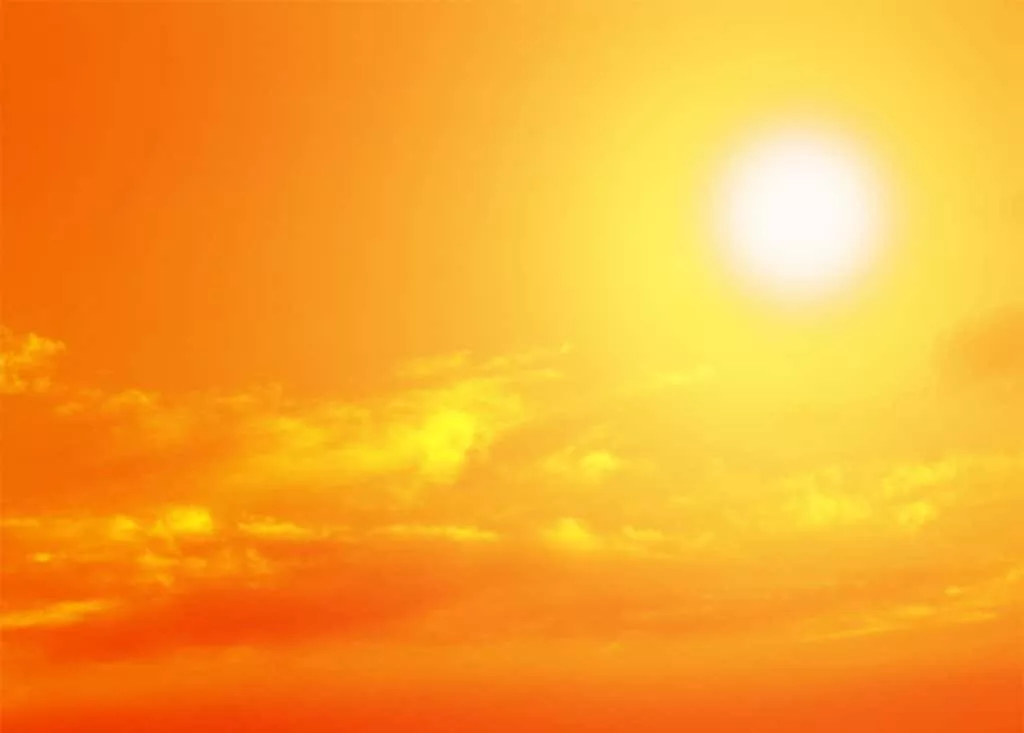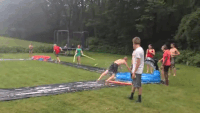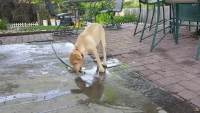
The summer solstice is upon us: June 21 will be the longest day of 2018 for anyone living north of the equator. Technically speaking, the summer solstice occurs when the sun is directly over the Tropic of Cancer, or 23.5° north latitude. In 2018, this will occur at exactly 5:07 am Central on Thursday the 21st. So set your alarm, or feel free to sleep right through it. Just because June 21 is the longest day of the year for the Northern Hemisphere doesn’t mean every location has its earliest sunrise or latest sunset on that day.
If you live in Washington, DC, the latest sunset will be on the day after the Solstice, the 22nd. Note that the solstice also gives us the longest twilight of the year, usually about 1 to 1.5 extra hours after sunset. The Summer Solstice is also known as the first day of summer. That may be hard for many to believe since we had one of the warmest Mays on record and we have been wallowing in relentless heat ever since. If it has been this hot up to this point, I can hardly wait to see what the actual summer season brings. (Sarcasm intended).

Let’s face it, it’s just hard to get work done in the summer. It’s bright and sunny on the other side of that window, you’ve always got a friend or two posting beach pics on Instagram, and unless the A/C is blowing right on you, all you can think about is where your next ice-cold beverage is coming from. Overall, heat seems to interfere the most with complex tasks, including ones where you need to make a lot of decisions or hold many data points in your head at the same time. So if you need to do some hard thinking this summer, schedule your most demanding tasks for the morning or evening when it’s cooler, or consider cranking up the air conditioning.

But summer heat waves can be dangerous. Extreme heat is the number one weather-related killer, resulting in hundreds of fatalities each year. In the disastrous heat wave of 1980, more than 1,250 people died. A CDC study of the five years ending in 2003 attributed 3,442 deaths to exposure to extreme heat, or about 689 per year. Scientific America notes that sustained extreme heat can overwhelm the mechanisms in your body meant to regulate temperature, such as sweating in particular. In fact,” When a person is exposed to heat for a very long time, the first thing that shuts down is the ability to sweat,” notes the article. The problem with this is that sweat has a cooling effect when it evaporates, and if you stop sweating, then obviously this benefit dissipates too. It doesn’t take long after that point for a person to suffer from heat exhaustion or heat stroke, the latter which is when your core temperature climbs above 104-Farenheit and becomes a medical emergency as it can damage internal organs, including the brain.

But that is not all heat does to us. Wired magazine shares an article entitled “The Hazy Science of Hot Weather and Violence,” which explains there’s some loose evidence linking higher temperatures and more aggressive behavior. In fact, it points out people with short tempers are called “hotheads,” apparently in reference to being affected by too much direct sun. Another danger is dehydration. High heat deprive your body of precious water perhaps faster than you think – The Weather Channel notes if you’re exposed to direct sunlight in temperatures of 90-Farenheit or higher, “the body can lose as much as half a gallon of water every 10 minutes.”

Dehydration can mess with the body’s internal functions and make you more susceptible to sunburns and sunstroke. High humidity (lots of moisture in the air) poses health risks as it makes it more difficult for sweat on the surface of your skin to evaporate due to the air already being so saturated, resulting in Hyperthermia. Symptoms of hyperthermia include fatigue, cramps, and even fainting. High heat can put us into summer slumber mode, where we really don’t feel like doing much of anything except lounging by a pool or in the middle of a field (whichever is closer). This can impact your effectiveness at work in particular.

Research has found that critical thinking is negatively impacted it hotter conditions, making decisions harder. Also, there’s that whole thing with staring out a window at a beautiful sunny sky and weighing it against staring at a screen in a gloomy office. Rising heat and humidity can make it tough to breathe for some, especially if they have pre-existing respiratory conditions like asthma. Of course, you should be seeing a doctor if you’re having labored breathing in hot conditions. In most cases, shortness of breath is not normal. A physician may prescribe medications to help with inflammation causing breathing troubles, or recommend an inhaler to open up air passages. If you or someone you know is at higher risk for heat related illness, it is important to drink plenty of fluids; avoid overexertion; and get your doctor or pharmacist’s advice about medications taken for high blood pressure, depression, nervousness, mental illness, insomnia, or poor circulation.

Be aware that any sudden change in temperature, such as an early summer heat wave, will be stressful to your body. You will have a greater tolerance for the heat if you limit your physical activity until you become accustomed to the heat. Use Common Sense – Avoid hot foods and heavy meals; they add heat to your body. Do not leave infants, children, or pets in a parked car. Bring your pets indoors with you to protect them. Dress infants and young children in cool, loose clothing and shade their heads and faces with hats or an umbrella.

Limit sun exposure during the midday hours and in places of potential severe exposure, such as beaches. Ensure that infants and children drink adequate amounts of liquids. Give your outdoor animals plenty of fresh water, leave the water in a shady area, and consider wetting the animal down. Your best defense against heat-related illness is prevention. Staying cool and making simple changes in your fluid intake, activities, and clothing during hot weather can help you remain safe and healthy.






